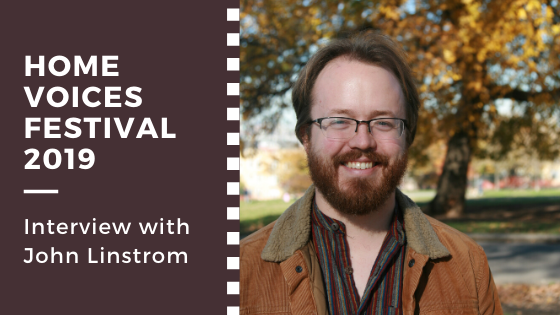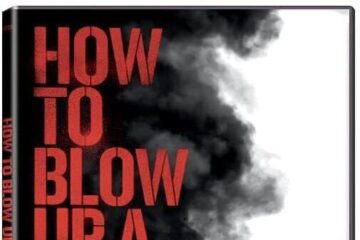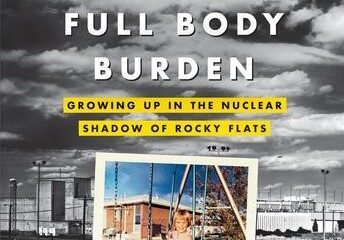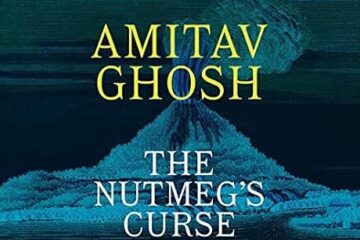The annual Home Voices Festival brings together alumni and current students of the Creative Writing and Environment program at Iowa State University. The Festival celebrates the accomplishments the alumni have had since graduating, as well as current students’ successes as they make their way through the program. This reading is often the first event of the spring semester’s Pearl Hogrefe Visiting Writers Series at Iowa State.
These interviews were conducted after the 2019 Festival, held on January 27th by recent ISU graduate, Shelby Rae Stringfield. You can find her on Twitter @Rae_Stringfield.


Hi John. It was great getting to meet you during the Home Voices event and hear about your experiences both as a writer and editor. I’d like to ask you a few questions so that our readers can get to know you and hear about your experiences both writing and editing creative works.
You’re a writer, and you also edited Liberty Hyde Bailey’s book The Holy Earth for its centennial. What made you interested in editing a historical text like this, and what was most impactful about that experience?
This is kind of a convoluted story. I grew up in the same town as Bailey, the Rust Belt beach town of South Haven, Michigan, about a hundred thirty years after he had grown up there, which was when it was still considered largely frontier wilderness. Somehow, I made it through high school never having heard of him. When I graduated from high school, I left town never really wanting to come back—I had grown tired of the same kids at school who thought I was either just a quiet nerd (the people who didn’t really know me) or who thought I was just a class clown (the people who sang in choir with me). Then, in college, I got into environmental justice and environmental literature through my interest in social justice. I discovered Bailey as an environmental writer while I was writing my senior honors thesis in the English Department on Thoreau and Whitman, and around that time I also started reading some of the work of Wendell Berry, about the importance of knowing your home place and caring for “marginal” places. When I came to Iowa State’s MFA program, I decided to turn to researching Bailey’s life and reading through much of his vast corpus in the process of crafting a researched, palimpsest of a memoir, layering Bailey’s life and mine over the changing landscape of our shared home place. Bailey, surprisingly, led me back to the home I had been so eager to flee, and my work on him became a very personally fulfilling project. By this point, I knew The Holy Earth as Bailey’s eco-philosophical manifesto, which deeply influenced Aldo Leopold’s concept of a “land ethic” and, by extension, the whole history of twentieth-century environmental philosophy. As I was heading to New York University for my PhD, I knew the hundredth anniversary of the book was coming up, so when Wendell Berry agreed to write the foreword it seemed natural to work to bring a new centennial edition into the world. I found in my research that no one had attempted to compile the authoritative text of the work since Bailey’s death, and there were a number of versions floating around, so that lent some meaning to my work on the centennial edition as well. And I had some idea of how to do that kind of work, having had the invaluable opportunity at Iowa State to work with Matthew Sivils on his edition of Paul Errington’s Of Wilderness and Wolves.
To get to the last part of your question, I think the most impactful part of the experience was meeting Wendell and Tanya Berry on their farm in Henry County, Kentucky. The two of them have lived a really incredible, meaningful life, and meeting them in person for a two-hour talk around their kitchen table turns out to be everything you would hope. They were gracious, provocative, and deeply kind. Later, bouncing around in Wendell’s truck along the two-track dirt roads on his hillside farm property, watching this eighty-year-old legendary author-prophet climb into the hay loft to toss bales down for his sheep as he chatted proudly about his two young sheep dogs, and coming upon his beautiful pair of retired draft horses enjoying the day on a sunny, sloped field, hemmed by trees—the self-evident beauty of this man’s life, which I had only ever read about, shone forth in an embodied way through his joyful handling of that piece of land. That’s a day I will never forget.
Having edited a book, you’ve inhabited a role in the publishing world that many authors never gain experience in. What assets do you think your experience as an editor has brought to your life as a writer? Did editing this book inspire your writing life, and did you do a lot of your own writing during this process?
The kind of textual editing that I did on The Holy Earth is an exercise in a certain kind of close reading—often mundane, but thoroughly intimate. In my case, it involved, among other tasks, hours and hours of going through two copies of the work, line by line, one published in 1915 and the other in 1916, to find what turned out to be seven alterations that Bailey seems to have made to the text between the two printings. While this may not seem like an exciting process, it brings the reader into an intimate sense of relationship with the text, looking for every little article and comma, and then having the great pleasure, when you come upon one of those seven deliberate changes, to wonder about why the change was made and what it might say about the particular writer’s aesthetic ideas—which, after enough hours logged in the activity, you start to have some pretty good sense of! The editorial process also involved trips to several different archival libraries, as I tried to uncover the publication history of the book and any correspondence that might relate to changes made, as well as the writing of a short introduction and a small handful of endnotes to elucidate interesting moments in the text itself, but I think the task of sitting with the text for those many hours is probably the thing that relates most closely to my own writing. I’m a big believer in reading slowly, especially for writers, because fast reading (which as far as I can tell is the same thing as skimming) lets you miss all of the musicality, the tenor, and the artistry of the language itself. Scholarly editing forces you to read about as slowly as you ever will, and it revealed so much more to me about Bailey’s writerly craft than my previous readings of that text had revealed. It helped me improve my reading, in a way, and I’m sure that you can’t improve your writing unless you’ve already begun the ongoing work of improving your reading. The act of reading empathetically, with the aim to listen closely and to understand, is a task never wasted on the writer. It’s true that during that time I didn’t get a whole lot of writing done beyond the writing that I did for the edition and for my full course load in the PhD program, but, like I said, it certainly wasn’t time wasted!
How did your time in Iowa State’s MFA impact your trajectory as a writer, in life, in your career? What is something you gained from this program, and what lasting effect has it had on you and your writing?
In my mind, an MFA program gives you at least two things most importantly: time and a writing community. I went to Iowa State as a bit of an experiment, to see whether I could seriously do this writing thing that I had been relegating to the sidelines of my life in college, and I think the experiment absolutely paid off. I always found the community of the MFA program at Iowa State to be particularly special. The fact that the program is toward a degree in “Creative Writing and Environment” means that, while everyone is intensely engaged in this seemingly solipsistic activity of writing, everyone also cares about something larger than herself, that “environment” part. I think that lends an urgency to much of the writing that comes out of the program, as well as an ethos of support among the members of the program. Big egos did flare up here and there from time to time, but that never seemed to be a big problem when I was in the program—everyone knew that everyone else was trying hard to do something meaningful, so we pretty much all had each other’s backs. Interestingly, as I’ve gone on from the MFA program into the wider world, that community has just expanded. I still exchange work with an ISU classmate or two from time to time, but those relationships have also led to entirely new ones. And, at the end of it, I think I can comfortable say that, yeah, I can seriously do this writing thing—I had three solid years of really smart writers (who were also really smart readers) helping me grow, and they’re still around, and we’re all still doing our own things and lifting each other up along the way.
Lastly, tell us about your own work. Where can we read your writing? What projects are currently in the works for you?
Well, there are a lot of irons in the fire. I’ve gotten pretty active in submitting my poetry to journals over the past year and a half, and I’ve had about a dozen publications come from the process, which has been really gratifying. I’m particularly excited to have a longish poem in five parts, titled “Blueshift,” in Cold Mountain Review—it’s a piece that grapples for an adequate way to introduce someone to the beauty of Lake Michigan, which I grew up about a mile away from, in light of the violence of various cultural and ecological changes that have occurred in and around the lake in recent history. I’m also particularly proud of my poem “Sweet Potato Elegy” in the May 2018 issue of Commonweal Magazine, which was one of five poems I contributed to that magazine last year, and of my poem “What was Precious” in the Fall/Winter 2017-2018 issue of Valparaiso Poetry Review. These and other poems I’ve recently worked up into a chapbook that I’ve started pitching around here and there, although the real goal is a full-length book of poetry exploring my family history through the lens of immigration and farm work. My researched “palimpsest of place” memoir that I mentioned before, which was my MFA thesis and which I’ve begun to revamp as a book manuscript, is also simmering. The next big thing for me, though, is that I have been working on as coeditor for several years now, titled The Liberty Hyde Bailey Gardener’s Companion: Essential Writings, which collects the best and most accessible literary garden writings of Bailey’s long career into a single volume for the first time and is due out from Cornell University Press in September. [Note: this book is now available here.] While The Holy Earth carries a lot of historical and philosophical significance, I think The Gardener’s Companion really provides the best possible introduction for the lay reader to Bailey’s most delightful and engaging work and has more potential for a general audience, and the time I’ve spent on that project with my long-time Bailey buddy and coeditor John Stempien has been a real joy. And, of course, my primary work right now is on my dissertation, which looks at a number of agrarian, indigenous, and diasporic American writers during the Progressive Era who each found ways to resist the technocratic forces of that period by drawing on various traditional land-based cosmologies to challenge the assumptions of industry and capital. While that is a more overtly academic project, I think I’m uncovering a history that resonates pretty strongly with our current moment, and I hope it eventually grows into an instructive and inspirational book for modern-day environmental justice activists.
John Linstrom‘s poems and nonfiction have recently appeared or are forthcoming in North American Review, Vallum, Atlanta Review, Cold Mountain Review, and Newfound. He is series editor of The Liberty Hyde Bailey Library for Cornell University Press, making available the works of Progressive-Era environmental philosopher L. H. Bailey. He coedited The Liberty Hyde Bailey Gardener’s Companion: Essential Writings (Comstock-Cornell UP, 2019), and he prepared the centennial edition of Bailey’s The Holy Earth (Counterpoint, 2015), featuring a new foreword by Wendell Berry. He currently lives with his wife and their joyful window garden in Queens, NY, where he is a doctoral candidate in English and American Literature at New York University, and he holds an MFA in Creative Writing and Environment from Iowa State University. You can read more about his work at his website, www.johnlinstrom.com.




